Medical Technology
Medical technology refers to the use of technology to improve the delivery of healthcare. It encompasses a wide range of tools, techniques, and equipment used in the diagnosis, treatment, and prevention of diseases and medical conditions. Medical technology plays a crucial role in modern healthcare, enabling healthcare professionals to provide more accurate diagnoses, deliver effective treatments, and improve patient outcomes.
Study Guide for Medical Technology
Here are some key topics to focus on when studying medical technology:
- Diagnostic Imaging: Understand the different types of diagnostic imaging techniques such as X-rays, MRI, CT scans, and ultrasound. Learn how these technologies work and their applications in diagnosing various medical conditions.
- Medical Devices: Explore the various medical devices used in healthcare, including monitoring devices, surgical instruments, and prosthetic devices. Understand how these devices are designed, manufactured, and utilized in patient care.
- Biotechnology: Learn about the use of biological systems and organisms to develop products and technologies for healthcare. Explore topics such as genetic engineering, biopharmaceuticals, and bioinformatics.
- Telemedicine: Understand the role of telecommunication technology in providing remote healthcare services. Learn about teleconsultation, telemonitoring, and telemedicine platforms.
- Robotics in Medicine: Explore the use of robotics and automation in surgical procedures, rehabilitation, and patient care. Understand how robotic-assisted surgeries are performed and the benefits they offer.
- Regulatory and Ethical Considerations: Study the regulations and ethical guidelines governing the development and use of medical technology. Understand the importance of patient privacy, data security, and compliance with healthcare regulations.
By mastering these topics, you will gain a comprehensive understanding of medical technology and its impact on modern healthcare.
.◂Science Worksheets and Study Guides Fifth Grade. Flowers and seeds
Study Guide Flowers and seeds
Flowers and seeds  Activity Lesson
Activity Lesson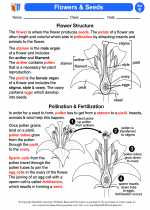 Flowers & Seeds
Flowers & Seeds  Worksheet/Answer key
Worksheet/Answer key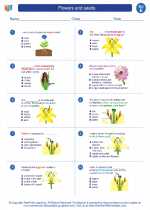 Flowers and seeds
Flowers and seeds  Worksheet/Answer key
Worksheet/Answer key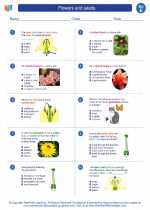 Flowers and seeds
Flowers and seeds  Worksheet/Answer key
Worksheet/Answer key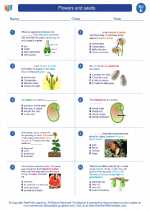 Flowers and seeds
Flowers and seeds  Worksheet/Answer key
Worksheet/Answer key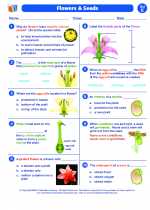 Flowers and seeds
Flowers and seeds  Vocabulary/Answer key
Vocabulary/Answer key Flowers and seeds
Flowers and seeds  Vocabulary/Answer key
Vocabulary/Answer key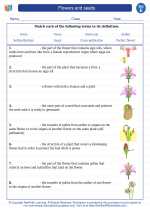 Flowers and seeds
Flowers and seeds 

 Activity Lesson
Activity Lesson
 Worksheet/Answer key
Worksheet/Answer key
 Worksheet/Answer key
Worksheet/Answer key
 Worksheet/Answer key
Worksheet/Answer key
 Worksheet/Answer key
Worksheet/Answer key
 Vocabulary/Answer key
Vocabulary/Answer key
 Vocabulary/Answer key
Vocabulary/Answer key

The resources above cover the following skills:
Life Science
All organisms have structures and systems with separate functions. Students can:
Develop and communicate an evidence-based scientific explanation of the role of different organs or structures that are important for an organism's survival - in both plants and animals